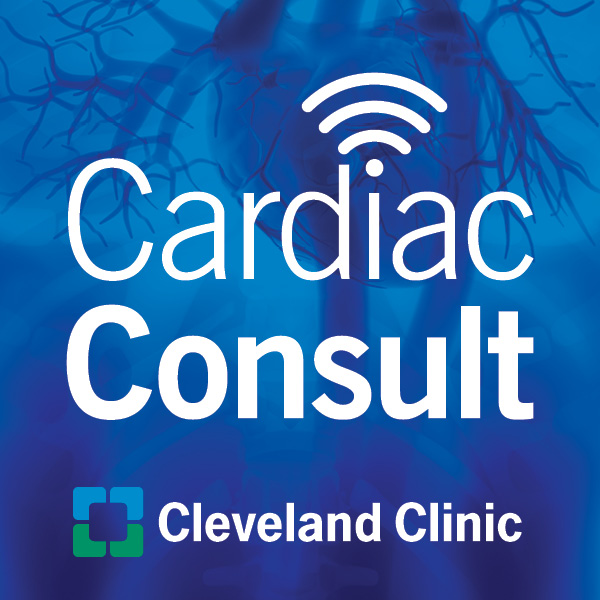
Cardiac Consult
A Cleveland Clinic podcast exploring heart, vascular and thoracic topics of interest to healthcare providers: medical and surgical treatments, diagnostic testing, medical conditions, and research, technology and practice issues.
Subscribe:

Featured Episode
Cleveland Clinic's New Cardiovascular Center on Aging
Venugopal Menon, MD, and Abdulla Damluji, MD, discuss the emerging subspecialty of cardiovascular aging and the growing need to tailor cardiovascular care for older adults.
Play NowAll Cardiac Consult Episodes
January 29, 2026
Structured Follow‑Up for Aortic Valve Replacement Success
Amar Krishnaswamy, MD, and Marijan Koprivanac, MD, discuss contemporary follow‑up strategies after TAVR and SAVR, highlighting advances in minimally invasive and robotic surgical approaches that significantly reduce recovery time and postoperative pain.
Play NowJanuary 22, 2026
New Guidelines on Acute Coronary Syndromes: Key Takeaways for Cardiologists
Explore the latest ACC/AHA guidelines on acute coronary syndromes with co-authors Venugopal Menon, MD, and Jacqueline Tamis-Holland, MD, joined by Donna Kimmaliardjuk, MD.
Play NowJanuary 15, 2026
Gut Microbiome and TMAO as Predictors of Abdominal Aortic Aneurysm Progression
Stanley Hazen, MD, PhD, and Scott Cameron, MD, PhD, discuss emerging evidence linking gut microbiome-derived TMAO to abdominal aortic aneurysm development and progression.
Play NowJanuary 8, 2026
Transcatheter Pulmonary Valve Therapy: Lifetime Management Strategies
Hani Najm, MD, and Joanna Ghobrial, MD, discuss the evolving role of transcatheter pulmonary valve implantation in lifetime management of congenital heart disease patients.
Play Now


